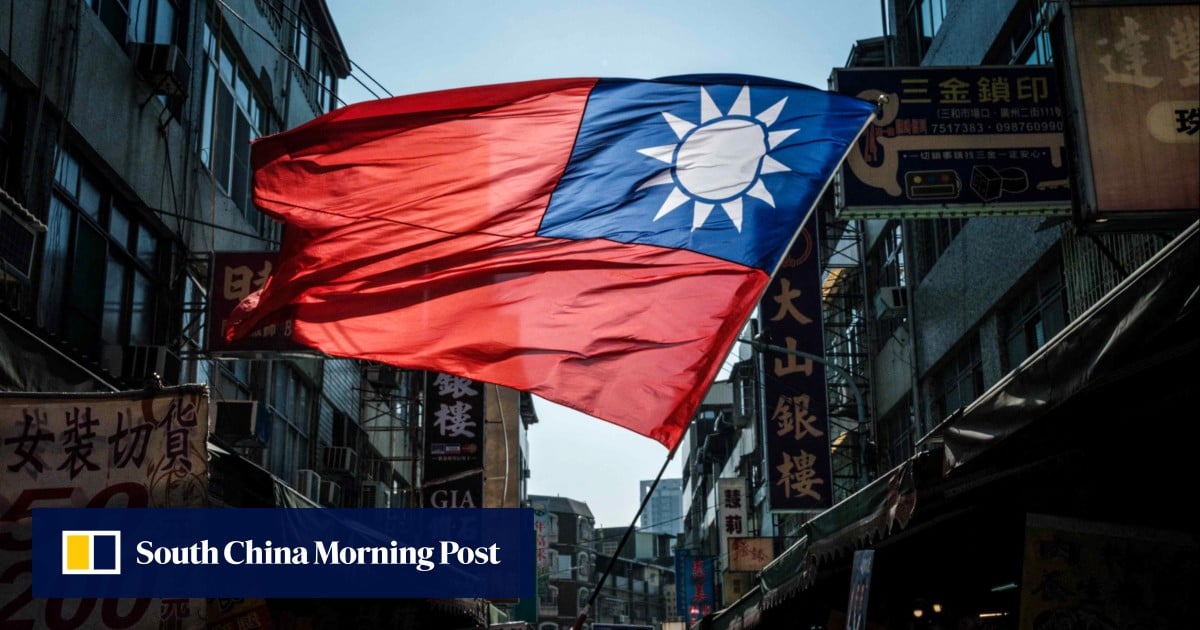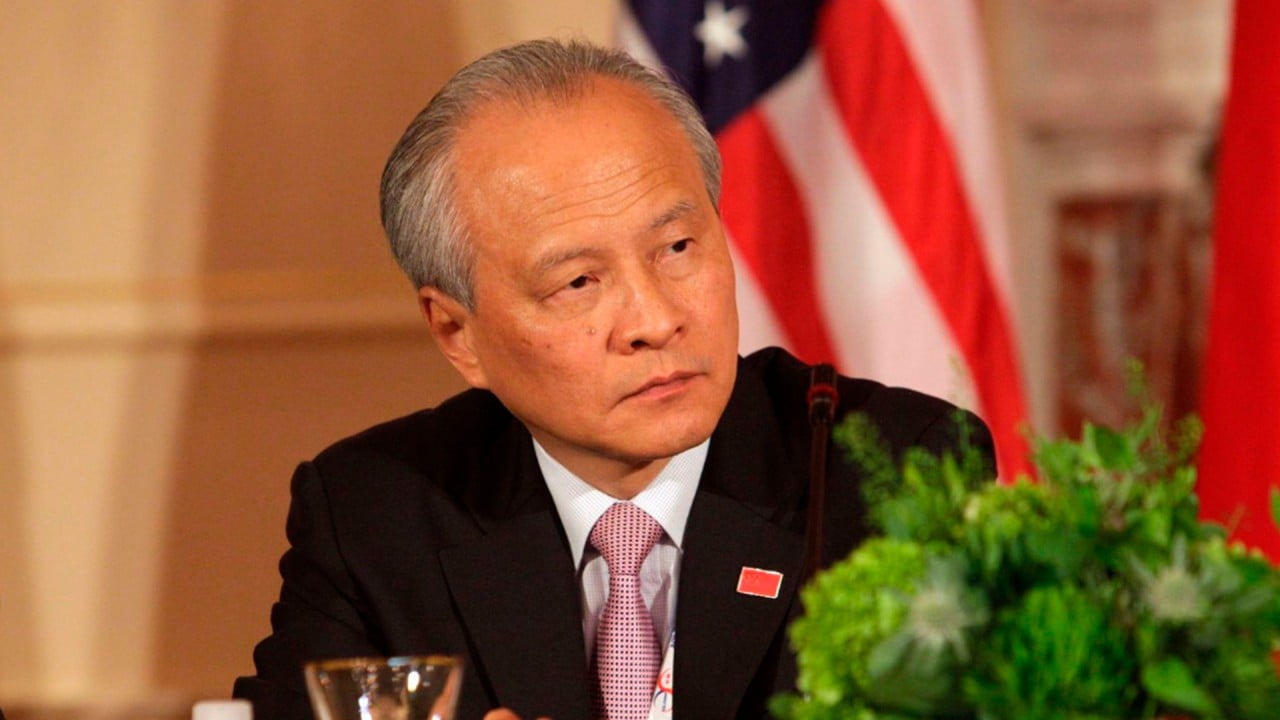Officials privately say they will work with whoever wins the election, and hope for a clear result that leaves no margin for doubt. They have observed what they described as interference and disinformation by Beijing and fear a “too close to call” election could lead parties to blame external factors and destabilise the region.
As is habitual, Brussels will issue a statement when the result is clear, welcoming Taiwan’s commitment to democracy, according to EU sources. Unlike previous post-election statements, though, the bloc is expected to appeal for a reduction in cross-strait tensions.
Why does Taiwan matter so much to both mainland China and the US?
Why does Taiwan matter so much to both mainland China and the US?
“Our position is clear: no recognition of Taiwan as an independent state; no to intimidation, coercion and provocation by any side; no to the use of force; yes to bilateral ties with Taiwan, which do not imply any kind of political recognition as an independent country,” Borrell wrote.
Similar words were relayed to Chinese President Xi Jinping during the EU-China Summit in December, when EU leaders also warned of the “consequences” of any disruption to the status quo by force, yet have rarely been aired so expansively in public. The setting matters, one source said.
The EU is effectively powerless in the face of short-term shocks relating to the election. For example, the bloc’s members would likely find retaliatory trade measures unpalatable in the event of a temporary blockade of the island by the People’s Liberation Army, and shoring up Europe’s own chip supply is a long-term goal.
Yet the issue of Taiwan has crept into the mainstream in Europe and, try as they might, will be impossible to avoid going forward.
EU parliamentary and government delegations made 28 visits to Taiwan last year – one more than the previous records in 2016 and 2018, according to a tracker run by the think tank China Observers in Central and Eastern Europe.
In June, the EU’s 27 leaders expressed concern about “growing tensions in the Taiwan Strait” and opposed “any unilateral attempts to change the status quo by force or coercion” – the first time they had used such language following a European Council summit.
Brussels has been grateful for Taiwan’s support for sanctions against Russia over the invasion of Ukraine. Months before the war, EU officials lobbied Tsai’s government to cut off Moscow’s supply of chips. When Taipei got on board with Western sanctions, it was noted that it adopted EU language in its communications.
Some think Europe’s gratitude should come in the form of more concrete policy moves, and this pressure from the European Parliament, the United States and Taipei itself is likely to grow in the event of a Democratic Progressive Party (DPP) victory.
“The EU remains concerned about Taiwan, but I’m not sure where it fits on their agenda, and what more they’re really willing to do,” said Bonnie Glaser, managing director of the German Marshall Fund for the United States’ Indo-Pacific programme.
“They’ve done the easy things. Making a statement that preservation of peace and security in the Taiwan Strait is in the EU’s interest is a relatively easy thing to do in my view – and that’s been done.”
A bilateral investment deal has been a long-standing demand from both Taipei and the European Parliament, but senior sources said that would not happen. They pointed to free-flowing bilateral commerce and said the major grievances – market entry for European wind turbine machinery and beef – could be resolved without a formal agreement.
Hanging over all of this, however, is fear of retaliation from Beijing. Europe does not have the stomach to pick a fight with Beijing over what would be a largely symbolic agreement.
“When China puts sanctions on Flemish beers or Flemish ports for our deals with Taiwan, then you will have the same MEPs running round crying – their values will be gone,” said one senior official, referring to a European Parliament resolution reiterating the demand in December.
Even if the commission did decide to cut a deal with Taiwan, it is difficult to see how it would get the support of all 27 member states, as is required by law.
Officials described the response from some EU members to Taiwan issues as “Pavlovian”; as soon as the topic is raised, they shoot it down, blocking it from official agendas and hampering EU efforts to prepare for future crises.
In some instances, the opposition is simple. Hungary’s veto, for example, is in line with its broader pro-Beijing stance.
European Union chief cautions Beijing against taking Taiwan
European Union chief cautions Beijing against taking Taiwan
But in others, such as the case of Cyprus, it is more nuanced. These national quirks will be harder for Europe to overcome.
In 2011, Turkey’s then EU minister Egemen Bagis made a proposal: Ankara would bow to EU demands to open its ports and airspace to Greek Cyprus, but only if the EU lifted an embargo on Northern Cyprus, a territory recognised as a country by Turkey alone.
“The fact that an Al Italia or an Air France plane is landing at Ercan would not mean they recognise [Turkish Cyprus],” Bagis told Reuters. “This would be like the Taiwanese model – a trade relationship.”
The invocation of the “Taiwanese model” for Northern Cyprus spooked Nicosia. It has since become the biggest obstacle to EU strategising on Taiwan, multiple sources said. Taiwan can be discussed under the guise of a China item, but reaching substantive conclusions is harder.
Other EU governments, as well as the US, have attempted to unblock the issue, but to no avail. There is usually a trade-off, said one source, but no amount of horse-trading can persuade Cyprus to change its mind. EU officials have suggested Cypriot diplomats simply leave the room when Taiwan is discussed, but the Cypriots prefer it is not discussed at all.
A Cypriot diplomat described the issue as “existential”. And with language like that – and the need for unanimity to build EU foreign policy – it is difficult to see how substantive EU policy on Taiwan could progress.
However, analysts believe that geopolitical realities mean Europe must continue to try.
“Tensions over Taiwan have risen since the EU first launched its Indo-Pacific strategy in 2021. They are now likely to rise again,” said James Crabtree, a distinguished visiting fellow at the European Council on Foreign Relations.
“Europe needs to find a balanced and united approach that both supports Taiwan in the face of external coercion while also working more closely with like minded partners in Asia. Getting that balance right will be a major test of Europe’s Indo-Pacific strategy over the coming 12 months.”

